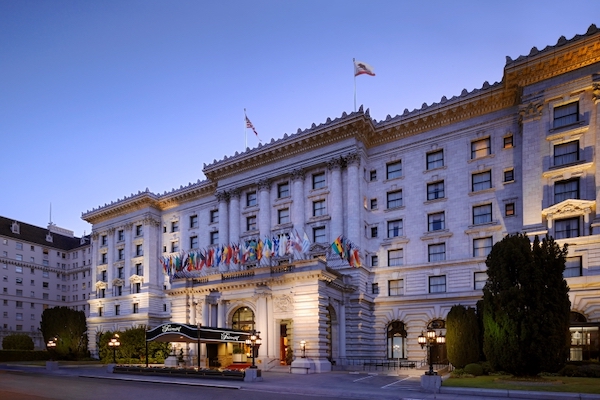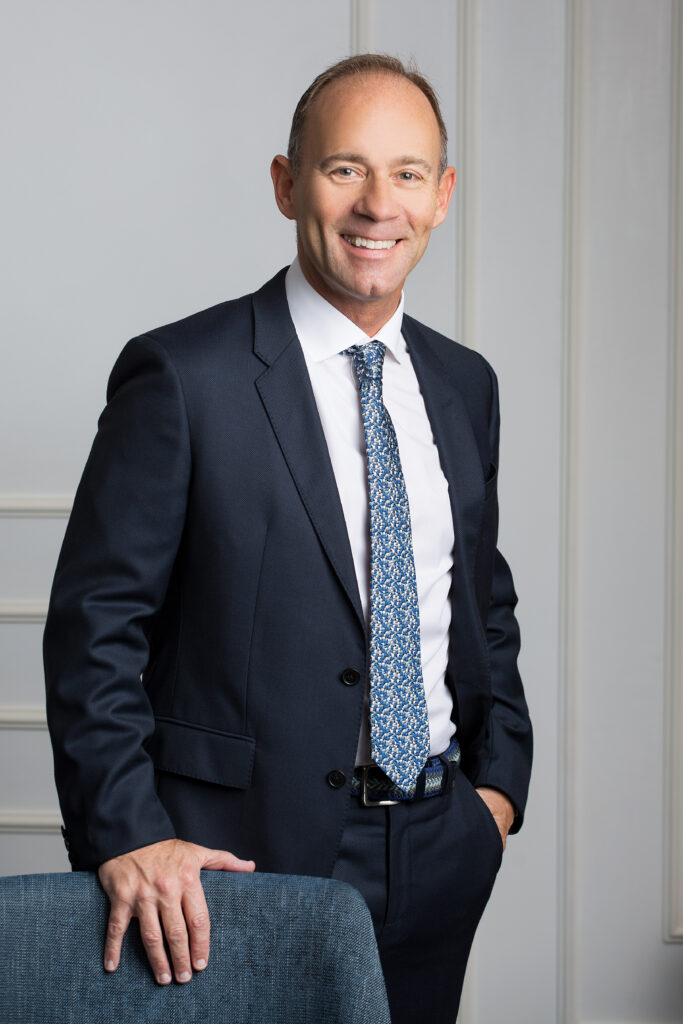Here’s something interesting about Mark Willis, CEO of Accor’s luxury Fairmont Hotels & Resorts brand: Victoria Beckham is godmother to his son. Naturally, he also knows Victoria Beckham’s other half, footballer-turned-style-icon David Beckham, quite well. So well, in fact, that he once tried to teach Beckham up on the hotel industry, since Becks has expressed interest in the business, like fellow football friends, Ryan Giggs and Gary Neville, both of whom own a hotel in Manchester.
The way Willis tells it, Beckham might be best suited sticking to corner kicks, Instagram posts and Tudor watch ads. “I spent an hour trying to explain RevPAR to him,” Willis said. “Just totally over his head.”
At least he had a great teacher. Willis became CEO of Fairmont back in January, part of an organizational reshuffle by Accor across regions and by product, in order to better serve its more than 40 brands and, importantly, its hotel ownership community.
One group, “Luxury and Lifestyle,” includes brands such as Raffles, Orient Express, Fairmont and Sofitel, along with collections MGallery, Emblems, and Handwritten Collection. It also includes brands within the Ennismore joint venture. On the other side is the the “Premium, Midscale & Economy” division, which includes brands such as ibis, Mercure, Mövenpick, Pullman and Novotel. They are all structured around four regions.
In total, the company is now set up into eight hubs across the world with eight CEOs running those hubs—all reporting into Sébastien Bazin, the outspoken and maverick CEO of Accor.

LEADING THE WAY
Willis now has Fairmont under his supervision after stints as president for the Asia region with Mövenpick Hotels & Resorts, before his scope expanded to CEO India, Middle East, Africa & Turkey. Since the corporate overhaul, Willis has seen an uptick in interest in the Fairmont brand. “It’s very interesting to see the the perception of Fairmont change,” he said. “We’re getting a lot of traction with properties that are unbranded or properties coming to end of their term.”
He’s especially excited to now be working with Fairmont, a brand he is enamored with because of its “wonderful heritage,” he said. The company’s roots stretch back to Canada, where the bulk of its properties still reside (19 in total), but the brand is now global as ever. There are currently 90 Fairmont properties in operation across 30 countries, with a pipeline of 30 hotels.
The Fairmont San Francisco, for one, opened in 1907 and was almost lost during the 1906 San Francisco earthquake. Today, the city has more to worry over than natural disaster, but crime and a homeless epidemic that has steered tourists away. “It’s really taken its time to come back and recover,” Willis said. “But, if ever there’s a location that can flick a switch and recover, it’s San Francisco.”
He’s as optimistic about upcoming Fairmont properties, which include Fairmont Breakers, Long Beach, Calif., Fairmont Orlando and Fairmont Phoenix, in the U.S.; Fairmont La Paz Puerta Cortés Resort and Residences, Mexico; Fairmont La Hacienda, Spain and Golden Prague Hotel, a Fairmont Managed Hotel, in Europe; Fairmont Dubai Skyline and Fairmont Hanoi and Fairmont Port Douglas, Australia, in Asia-Pacific.
Luxury hotels have long build times, as much as three years, depending on site. They are expensive to build and expensive to operate, but, according to Willis, worth the investment. Despite recent travail, luxury hotels have persevered, even thrived. “If you look at the last 18 months, hotel rates within the luxury segment have been unprecedented,” Willis said. “A lot of people have traded up [in hotels] after two years of being locked down or unable to travel. They’ve got a few extra dollars to spend and if it’s $100 a night or $75 a night, that can take you up a segment.”
STR predicts that luxury segment RevPAR will be up 6.9% in 2023, 7.1% in 2024 and 6.4% in 2025. That’s the highest growth rate of any segment next to upper-upscale.

BUSINESS IS OPEN
Willis has also seen a noticeable reemergence in corporate travel, bucking the notion that COVID would obviate the need to go to a physical workplace and, also, cut back the need to travel for business. “It’s returned nicely,” Willis said. “There was this ethos that business travel would be no more.”
Consider the workplace at Fairmont. Willis works out of Dubai and when the office was fully reopened in August, there was such demand to come back that corporate actually had to ask for everyone to not all come back at once. “The office is not dead,” Willis said. “I don’t really want to work from my kitchen surrounded by three teenagers and my dogs.”
He’s also bullish on group business, one of the first segments to drop in the advent of COVID. Group business is normally a high-revenue generator due to the ancillary spend typically associated with this cohort. “We are doing very well within the group business segment, not least because we have some big [hotels] that are able to handle those big events,” Willis said, pointing to hotels such as the Fairmont Scottsdale Princess and Fairmont Austin that have the massive infrastructure to accommodate meetings and conferences.
The profile of a Fairmont owner is varied, but all have one thing in common: deep pockets. They differ depending on where the hotel is being built or located and include institutional owners, large funds and high-net-worth individuals—especially in the Middle East.
Willis thinks of Fairmont as a Swiss army knife of hotel brands—able to provide many different experiences. “It’s a mix of things—not one shoe fits all,” he said. “We have resort Fairmonts, especially in the Middle East and Asia; we have a lot of business Fairmonts, especially in Europe and the U.S. and we have a lot of leisure Fairmonts in the U.S. and Canada. It’s a real mixed portfolio and that goes very well with our guest mix.
All of it helps feed a 60-million strong loyalty program, Accor Live Limitless, which, by its myriad brands, creates a travel ecosystem that extends from traditional hotels to alternative accommodations. Fairmont is one part of the brand machine. “There’s a lot of growth here, there’s a lot of opportunity here and the brand is super strong,” WIllis said.
